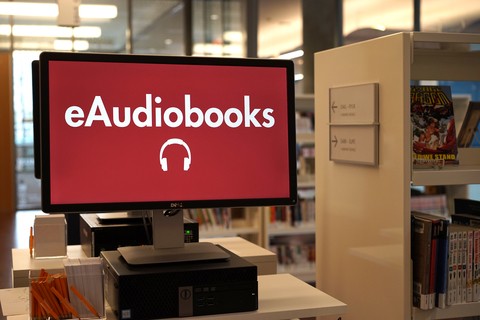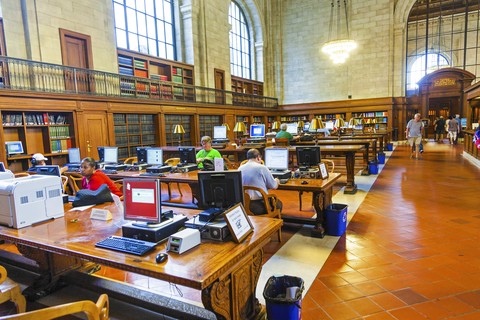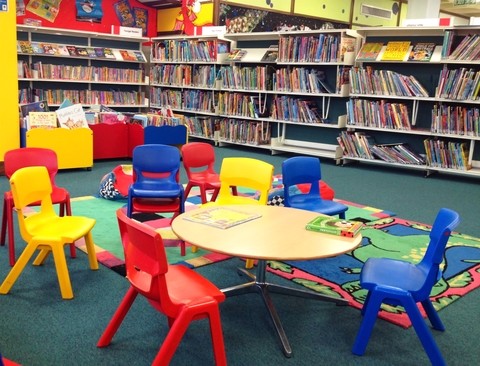“I have always imagined that paradise will be a kind of library.” So said the famed novelist Jorge Luis Borges, and if you love those musty old buildings packed with study carrels and knowledge, you probably share his heavenly sentiment.
Tap or click here for 4 apps to help organize your books, music and movies.
Today, the library is as essential as ever. I mean physical libraries, the same brick-and-mortar buildings that have been lending books since the dawn of America. However, how does a place full of hardbacks and CDs keep pace with the digital universe? By adapting to its logic and evolving with the times.
Tap or click here for a fantastic resource for free eBooks.
Armed with a simple library card, you can put your tax money to good use and support one of the noblest institutions there is – all the while enjoying a near-limitless supply of literature, periodicals, music, movies, and even free office space. Here are just a few of the perks your local library has to offer.
1. eBooks and Audiobooks

When you think “library,” you think books. But books come in many varieties, including picture books for kids, paperbacks for the beach, and large-print books for people with visual challenges.
The explosion of media has birthed multiple new formats as well: libraries today also boast an impressive number of eBooks and audiobooks, all for free with a library card. All you need is your eReader (such as the super-cheap Kindle) and/or an audiobook app that supports your library’s file types (such as Overdrive), and you can binge on books the way you binge TV shows.
Just keep in mind eBooks and audiobooks from the library come with due dates, just like the print books do – you’ll be able to keep your copy for generally about two weeks, then you’ll have to renew your reading material, or let it be available again to other library cardholders.
Specific titles, especially beloved bestsellers, may not always be available either. However, you can place hold requests, just like with print books, and get the link to download your copy as soon as it’s available.
2. DVDs and CDs
Long before streaming, libraries made a go of competing with video and music stores with one big exception – the tapes, DVDs and CDs would be free to check out with a library card.
Sure, the selection might be somewhat more limited, and new releases wouldn’t get there as quickly, and sometimes the DVDs or CDs would be scratched and difficult to play. The movies would be free, and still are free at your local library right now.
The best approach to a library’s selection is to treat it like a thrift store: you never know what’s been donated over the years, so you can browse the eclectic collection for old favorites or bygone blockbusters you never got around to.
3. Wi-Fi and places to work
The “virtual office” usually means one of two things: your house, or a cafe. Coffee drinks add up, and sometimes leaving the house is a boon for productivity. The solution: an open table or padded chair, courtesy of your local book-lender. Every major library has free Wi-Fi, outlets, and designated places to work, and your only limitations are the hours of operation. (And don’t make any phone calls, obviously).
Libraries often have secluded workspaces and conference rooms you can reserve.
4. Computers



Need a computer too? Virtually all libraries have desktops available, and some even have laptops you can rent on site. These devices come with time limits on their use, but they’re still handy for many situations, and they often have printers available for use as well. So libraries make excellent work locations.
5. Free images
Need great stock images that are more historical or natural, or need to look at famous works of art, or some local maps? Libraries can help with all of that.
The New York Public Library has 200,000 free images you can use for any purpose, and you can download them from your home right now. It also has a collection of 180,000 works of art, literature, and performance, many of which are in the public domain, as well as 672,000 items in its digital collection in general.
Peruse any of the items in your home right now, and use the public domain ones for any purposes you can think of. Then perhaps enjoy a collection of coloring pages from world-class libraries and museums, which you can print out and use whenever also made available through the digitizing efforts of libraries.
Also, don’t forget to see what similar services your local library has—you may get to see some great old maps of your town or portraits done by local artists of yore.
6. Classes on Technology
As an inexpensive alternative to more formal continuing education classes, libraries often host classes and workshops on various subjects. These classes might be on technology, accounting, or studio art.
In the case of the D.C. library system, there might even be a class on how to avoid NSA spying. Classes are often divided by age, offering courses to teens and adults to better account for their relative learning levels, and some libraries even offer courses aimed at young children to encourage literacy and necessary math skills.
Libraries also frequently offer ESL programs to help those less familiar with English gain fluency. Since these classes are free, they’re aimed at a large audience, so typically they’re designed for serious beginners. If you already know a bit about Excel, taking a class on it at your local library will likely cover what you already know.
7. Activities for children



Libraries are heavily geared toward children, from individual sections (organized by age groups and reading ability) to kid-friendly programming, like storytelling and play sessions.
Kids may also access computers with pre-installed games and learning programs. (Full internet access may be restricted as well).
8. Employment help
As mentioned, libraries offer free classes that can give you the skills to put on a resume. On top of that, many local libraries have job listings on their website, particularly with local companies that hire often, and some libraries offer programs to provide some basic resume and cover letter critique to those seeking it out.
If you’re looking for work, your local library can be a fantastic resource for you. Check out your local library’s site, and ask about it next time you go in for any of its other amazing services and resources.
9. 3-D printers
Some of the most tech-savvy libraries, including college libraries, offer 3-D printers for use. It’s all part of what’s called the Maker Culture, providing spaces for people to create things that they use or sell.
Check with your library for availability, any associated costs (some libraries offer printing for free but charge for the plastic that is used) and policies. You don’t want to get caught printing something that could get you in trouble.
10. Hotspots
While Wi-Fi is almost always available in libraries, more are offering hotspots for checkout. This gives internet access to people that otherwise don’t have it, ensuring that libraries are doing their part to close the digital divide.
Schools sometimes borrow the hotspots for their students, or families will get the devices so the kids can get some homework done. Check with your library before you go get a hotspot, as the devices can have long waiting lists.
11. All Kinds of Devices
In well-stocked libraries, you can borrow an arsenal of digital equipment by the hour. If you only need a camcorder to record a short meeting, or you just need a laptop long enough to edit a few dozen photos, this is the perfect arrangement.
Most such lending occurs at colleges and universities, where students must use their student IDs to check out expensive electronics. But some technology is only available at your library, or at least would be hard to find anywhere else: librarians may provide easy access to microfiche readers, transparency projectors, laser disc devices, cassette players and vinyl record turntables. Such old-school devices may reopen whole archives of lost material.
What digital lifestyle questions do you have? Call my national radio show and click here to find it on your local radio station. You can listen to the Kim Komando Show on your phone, tablet or computer. From buying advice to digital life issues, click here for my free podcasts.
